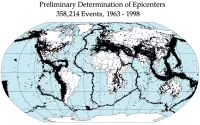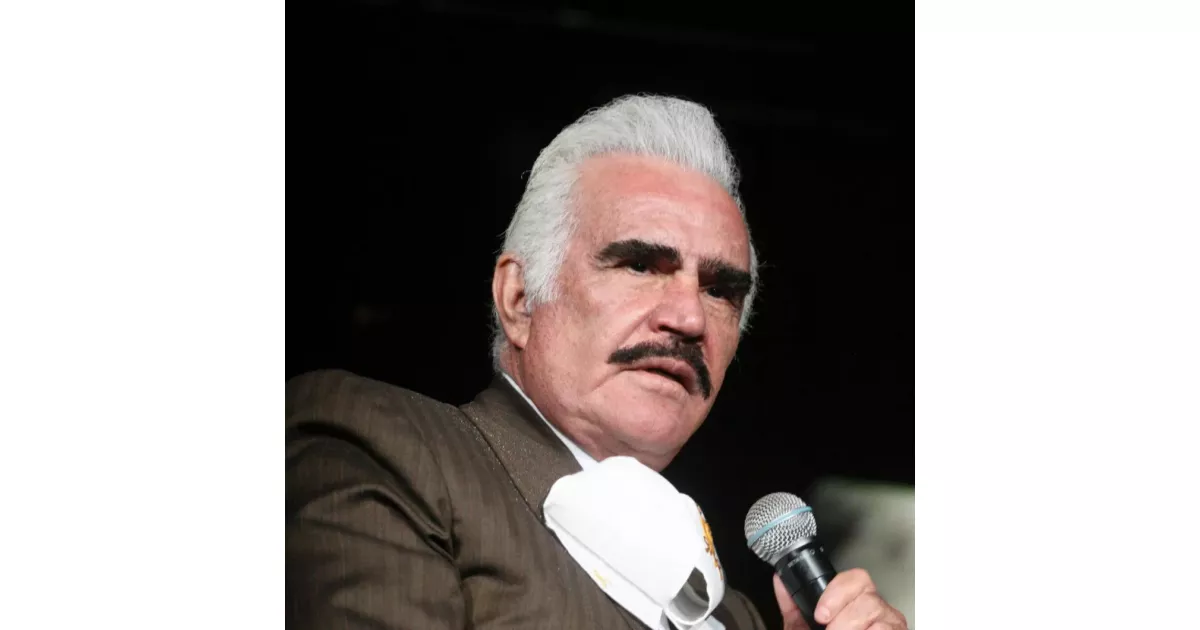Vicente Fernández, known as "Chente" and "El Charro de Huentitán", was a highly influential Mexican mariachi singer, actor, and film producer. Starting as a busker, he rose to become a cultural icon, recording over 100 albums and appearing in more than 150 films. His extensive repertoire focused on rancheras and other traditional Mexican musical forms, solidifying his status as "El Ídolo de México" and "El Rey de la Música Ranchera".
1989: Latin Music Award for Mexican Regional Male Artist of the Year
In 1989, Vicente Fernández won the Billboard and Univision's Latin Music Award for Mexican Regional Male Artist of the Year
1990: Release of tribute album
In 1990, Vicente Fernández released the album "Vicente Fernandez y las clásicas de José Alfredo Jiménez", a tribute to José Alfredo Jiménez. The album earned him Billboard and Univision's Latin Music Award for Mexican Regional Male Artist of the Year.
1993: Latin Music Award for Mexican Regional Male Artist of the Year
In 1993, Vicente Fernández won the Billboard and Univision's Latin Music Award for Mexican Regional Male Artist of the Year
November 1998: Induction into Latin Music Hall of Fame and star on Hollywood Walk of Fame
In November 1998, Vicente Fernández was inducted into Billboard's Latin Music Hall of Fame. On 11 November 1998 his star on the Hollywood Walk of Fame was unveiled.
2002: Recognition as Person of the Year and anniversary celebration
In 2002, the Latin Recording Academy recognized Vicente Fernández as Person of the Year. He celebrated his 35th anniversary in the entertainment industry, selling over 50 million records and being inducted into the International Latin Music Hall of Fame.
2005: Arena built in his honor
In 2005, an arena in Guadalajara was built in Vicente Fernández's honor by his company. Additionally, a star with his hand prints and name was placed at the Paseo de las Luminarias in Mexico City.
July 2008: Vicente Fernández Day in New Mexico
On July 16, 2008, Governor of New Mexico Bill Richardson declared June 12 as Vicente Fernández Day in the state.
2010: Grammy Award for Necesito de Tí
In 2010, Vicente Fernández was awarded his first Grammy Award for Best Regional Mexican Album for his record Necesito de Tí.
2012: Key to Chicago and street renaming
In 2012, Chicago gave Vicente Fernández the key to the city and renamed West 26th Street in the Little Village neighborhood in his honor. The city also established "Vicente Fernandez Week" from October 20 to 27.
April 2016: Support for Hillary Clinton
In April 2016, Vicente Fernández criticized Donald Trump's anti-immigrant rhetoric, stating he would "spit on" him. Later that year, he supported Hillary Clinton, releasing "El Corrido de Hillary Clinton". Following a debate, Clinton invited Fernández to a celebration in Las Vegas.
October 2019: Unveiling of statue in Guadalajara
On October 6, 2019, in Guadalajara, Vicente Fernández unveiled a statue created in his honor at the "Plaza de los Mariachis".
January 2021: Controversy over picture with fan
In January 2021, Vicente Fernández faced controversy after placing his hand on a fan's breast while taking a picture with her family. Days later, Fernández apologized to the woman's family, admitting he was wrong and stating he didn't remember the incident.
February 2021: Accusation of sexual assault
In February 2021, singer Lupita Castro accused Vicente Fernández of sexual assault, alleging the incident occurred 40 years prior when she was 17. She claimed she remained silent due to his influence and threats of violence, and refused to pursue legal action.
August 6, 2021: Hospitalization after fall
On August 6, 2021, Vicente Fernández was hospitalized in serious condition after a fall at his ranch in Guadalajara, injuring his cervical spine and requiring a ventilator in the intensive care unit.
October 2021: Released from intensive care
In October 2021, Vicente Fernández was released from intensive care following an improvement in his clinical condition after being hospitalized for a fall in August.
November 30, 2021: Readmission to intensive care
On November 30, 2021, Vicente Fernández was readmitted to intensive care due to a health complication caused by pneumonia, after initially being hospitalized in August.
December 12, 2021: Death of Vicente Fernández
On December 12, 2021, Vicente Fernández died at the age of 81 due to complications from his injuries. His death was mourned by prominent figures including the President of Mexico, the Colombian President, U.S. President Joe Biden and Hillary Clinton, who recognized him as a musical icon. He passed away on the day of Our Lady of Guadalupe, to whom he had a great devotion.
2022: Grammy Award for A Mis 80's
In 2022, the album A Mis 80's by Vicente Fernández won a Grammy Award for Best Regional Mexican Music Album.
Mentioned in this timeline

Donald John Trump is an American politician media personality and...

Hillary Diane Rodham Clinton is a prominent American politician lawyer...
CBS Broadcasting Inc CBS is a prominent American commercial broadcast...
Colombia officially the Republic of Colombia is a country located...

Guadalajara the capital of Jalisco in western Mexico is a...

An earthquake is the shaking of the Earth's surface caused...
Trending

35 minutes ago Oklahoma Sooners Honor Buddy Hield and 2016 Final Four Team.
35 minutes ago Moldova's Veterinary Education to modernize through the EDUVET European Project for enhancement.

36 minutes ago Brendan Fraser as Eisenhower in 'Pressure': D-Day drama unfolds with weather worries.

36 minutes ago Cade Cunningham's 42 Points Leads Pistons Over Knicks; Brunson's Performance Notable.

36 minutes ago Usha Vance's diaper request sparks controversy during pregnancy: A novel approach?

2 hours ago Learner Tien at Delray Beach Open: Fritz ousted, Paul advances, Korda previewed.
Popular

Jesse Jackson is an American civil rights activist politician and...

Barack Obama the th U S President - was the...

Bernie Sanders is a prominent American politician currently serving as...

Ken Paxton is an American politician and lawyer serving as...

Michael Joseph Jackson the King of Pop was a highly...
Randall Adam Fine is an American politician a Republican who...
